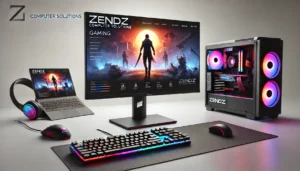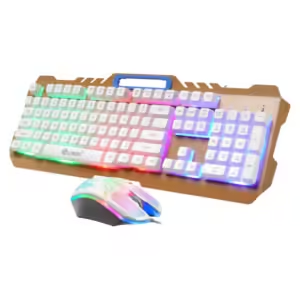Building or upgrading a computer can be an exciting yet daunting task. With so many components to choose from, it’s essential to understand which parts are best suited for your specific needs. At Zendz Computer Solutions, we aim to make this process easier for you. In this blog post, we will guide you through the key components you need to consider and how to choose the best computer parts for your build.
1. Central Processing Unit (CPU)
The CPU is the brain of your computer, responsible for executing instructions and performing calculations. Choosing the right CPU depends on what you intend to do with your computer.
Considerations:
- Performance: Higher clock speeds and more cores are ideal for gaming, video editing, and heavy multitasking.
- Budget: Determine your budget and find a CPU that offers the best performance within that range.
- Compatibility: Ensure the CPU is compatible with your motherboard socket.
2. Graphics Processing Unit (GPU)
The GPU handles rendering images, videos, and animations. It’s crucial for gaming, graphic design, and video editing.
Considerations:
- Performance: Look for a GPU with higher VRAM and faster processing power for intensive tasks.
- Resolution: Higher resolution gaming or design work requires a more powerful GPU.
- Future-Proofing: Invest in a GPU that will handle future software and game releases.
3. Memory (RAM)
RAM is where your computer stores data that is currently being used. More RAM allows for better multitasking and smoother performance.
Considerations:
- Capacity: 8GB is the minimum for most tasks, but 16GB or more is recommended for gaming and professional applications.
- Speed: Higher speed RAM can improve performance, especially in gaming and memory-intensive applications.
- Compatibility: Ensure the RAM is compatible with your motherboard and CPU.
4. Storage
Your choice of storage affects the speed at which your computer can access and save data. There are two main types: Hard Disk Drives (HDDs) and Solid State Drives (SSDs).
Considerations:
- Speed: SSDs are faster than HDDs and significantly improve boot times and file access speeds.
- Capacity: Choose a capacity that suits your needs. SSDs are generally more expensive per GB, so a combination of SSD for the operating system and HDD for storage can be a good balance.
- Form Factor: Ensure the storage drive fits in your case and is compatible with your motherboard.
5. Motherboard
The motherboard connects all the components of your computer. It’s important to choose one that supports all your parts and has room for future upgrades.
Considerations:
- Compatibility: Make sure the motherboard is compatible with your CPU, RAM, and other components.
- Expansion Slots: Consider the number of PCIe slots, USB ports, and other connections you might need.
- Form Factor: Choose a form factor (ATX, Micro-ATX, Mini-ITX) that fits your case.
6. Power Supply Unit (PSU)
The PSU provides power to all the components in your computer. It’s crucial to choose a reliable PSU that can handle the power requirements of your build.
Considerations:
- Wattage: Calculate the total wattage required by your components and choose a PSU that provides a bit more than needed.
- Efficiency: Look for a PSU with an 80 Plus certification for better energy efficiency.
- Reliability: Choose a reputable brand to ensure long-term reliability and safety.
Conclusion
Choosing the right computer parts requires careful consideration of your needs, budget, and future plans. By understanding the role of each component and what to look for, you can build or upgrade a computer that perfectly suits your requirements. At Zendz Computer Solutions, we offer a wide range of high-quality computer parts to help you build your dream PC.
Visit our website Zendz Computer Solutions to explore our extensive collection of computer components.





